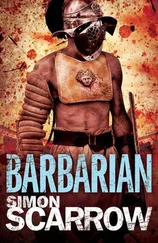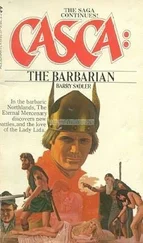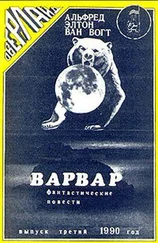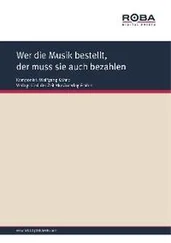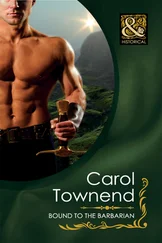This element is one of those with which small transactions are made. One does not suppress it, one arranges with it. One deals with it.
It is practically impossible, in China, to go outside of a city; twenty minutes away from it, they catch you. However, in the heart of China perhaps you will not get caught. But nowhere does security exist. There are pirates two hours from Macao, two hours from Hong Kong, who seize boats.
Now the Chinese, the Chinese businessman, is the first to fall a victim to them.
Never mind. For the Chinaman to see clearly, things must first be complicated. So that he may see clearly at home, he must have at least ten children and a concubine. So that he may see clearly in the streets, they must be labyrinths. So that the city may be gay, he must have a country fair.
So that he may go to the theater, it must have, in the same building, eight to ten theaters for dramas, comedies, films, plus a gallery for prostitutes, accompanied by their mothers, a few games of skill and of chance, and, in one corner, a lion and a panther.
A Chinese shopping street is stuffed with signs and advertisements. They hang from every side. You do not know what to look at.
How empty is the European city 5beside this; empty, clean, yes! and earthy.
So that he may feel fit, the Chinaman must have on his body the dirt of ninety days.

The Chinaman is neither honest nor dishonest.
If it is the time to be honest, he will take up honesty as one would take up a language.
When, in doing business with Englishmen, you have been conducting your correspondence in English, all your letters will be in English, and not all less five or six a month; thus, the Chinaman who takes up honesty of the rigid type is perfectly honest. He does not swerve from the rigid type; he is more faithful than the European.
But honest though he may be, dishonesty does not shock him. In fact, there is no dishonesty in nature. Is a caterpillar that eats the leaf of a cherry tree dishonest? And yet the Chinaman, before the arrival of the European, was famous throughout Asia for his remarkable honesty in business matters.

Europeans (Germanic, Gauls, Anglo-Saxons) out-Chinese the Chinese. It is often said that the Chinese invented everything… ahem!
Curiously enough, it is precisely the Europeans who have re-invented and ‘re-searched’ what the Chinese have invented and researched.
When the Chinese boast of having discovered diabolo, polo, football, archery, jiu-jitsu, paper, etc. — well, what is one to do about it? That does not prove that the Chinese is superior. It is does not prove that the European is superior either. It proves the superiority of the Hindu who, intensely cultivated, did not invent diabolo, football, etc.
Were I a civilization, I would not boast of having invented diabolo. No indeed; instead of that I would be ashamed of it, and I would hide from myself. I would make better resolutions for the future.
The Chinese and the Whites suffer from the same malady.
During the day they potter, then they have to play games.
Without their theater, the Chinese in the cities would find life insupportable. They need a thousand games.
Playing games, he is alive. At Macao, in the gambling dens, they become slightly animated; but fearing ridicule, they soon go out to take a pipe of opium and, having regained their wooden countenance, they return to the room.
Every instant, in the street, one hears pennies falling, and shouts of ‘heads or tail,’ and immediately a group of anxious faces, watching and praying.
In spite of all these games, a malady awaits the Chinaman: he finds himself unable to laugh any more. What with dissembling, making plans, composing his face, he no longer knows how to laugh. Terrible malady. There was a devoted child who, for filial love, stumbled and fell over some buckets of water to divert his parents afflicted with ‘the malady.’ Now when one knows how the Chinaman: 1) has a horror of water; 2) fears ridicule, one realizes the seriousness of the malady that must be cured, and the tremendous duties of filial love in China.

Chinamen should always be thought of as animals. The Hindus, as other animals, the Japanese ditto, and the Russians and the Germans, and so on. And in each race these three varities: the adult man, the child, and the woman. Three worlds. A man is a creature who understands nothing about a child, and nothing about a woman.
And neither they nor ourselves are right. We are obviously wrong, all of us.
Also, the question of whether Confucius is a great man need not be raised. The question is to know whether he was a great Chinaman, and thoroughly understood the Chinese, which seems to be true, and directed them for the best, which is not so certain.
Ditto Buddha for India, etc., etc.
In these different human species, their philosophy generally approaches the type or the race, but occasionally it is remote from it.
That is why it is difficult to know how far Confucius and Lao-Tsu have Chinesed the Chinese, or have un-Chinesed them, or how far Mencius, placing the Empire’s ban on war and the military, has fostered Chinese cowardice or affected the combativeness of the Chinese. It must be remembered that the Chinaman who runs amok is a demon that nothing can stop, and compared to whom a Malay is quite gentle, and that acts of courage were at least as abundant in China as elsewhere, and that their indifference to death and privation is incomparable.

The Chinese are not mere dreamers. They have not had transcendental systems or strokes of genius, but they made discoveries of incalculable practical value.
Confucius: the Edison of morality.
Kindliness, calm (do not meddle with what does not concern you. Behave according to your condition; if you are powerful, like a powerful person, if you are head over ears in debt, like a man head over ears in debt, etc.), correctness in attire, politeness…
No one has concerned himself with the relations between human beings with as much solicitude and foresight as the Chinese.
Sun Yat Sen said very justly: ‘Where politics are concerned, China has nothing to learn from Europe.’ In fact, she might give lessons to Europe and even India in the art — having done everything, put everything into practice, including the systematic absence of government.
Without municipality, without lawyers (if one of them turns up, he is put in prison… lawyers attract trials), without armies (armies attract wars), she has been able to live very well for quite a time, all the time that the Chinese were sufficiently wise.
When you are no longer wise, then, alas, you must have strong administrations. But nothing prevents or could prevent wars, revolution and destruction (see Europe, nineteenth century).
The Chinaman does not insist on his duty toward humanity in general, but toward his father and his mother; it is where one lives that things must go smoothly and that requires a touch and a virtue such as a European saint would be scarcely capable of showing.

The romantic Chinaman is as yet unborn. He always wants to look reasonable.
Tsin che Hoang Ti is one of the most famous and fantastic tyrants in the world, who had a whole mountain painted red (color of the condemned) because his people had got caught in a storm on it.
Читать дальше



